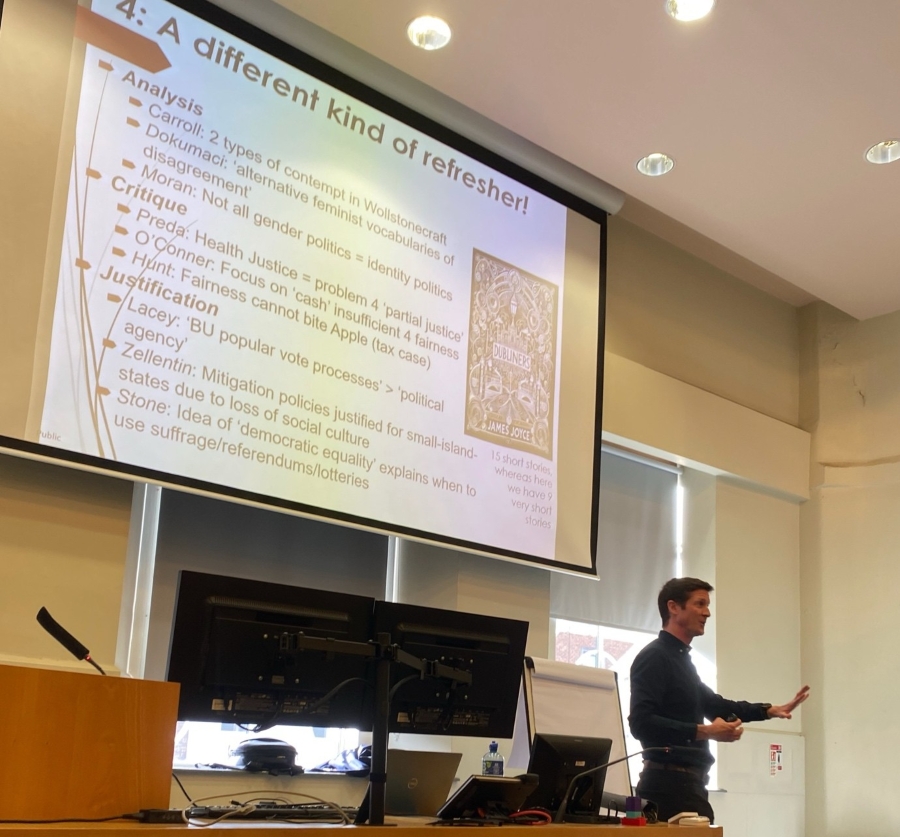PSAI Workshop on Methods in Political Theory
When the method boxes on scholarship and grant applications started to become ubiquitous, political philosophers were often puzzled about what to put in there: “I read, I think, I write, I throw ideas at people and see what objections come back, then I repeat the process until a solid (enough) argument emerges…” That is pretty much what I do, but what makes political theory an academic discipline can be expressed in much more detail and much more systematically. Besides, given the deep entanglement of normative, conceptual, and empirical questions, an increasing number of political theorists today do grounded and/or engaged political theory that incorporates social science methodologies in their projects.

Accordingly, there has been a focus on methodologies in normative political thought in recent years. One of the people driving the methodological moment is (opens in a new window)Prof Jonathan Floyd, who encourages us theorists to think more systematically about what we do, how we do it, and why we do it. These are incidentally the headings of the chapters of his book (opens in a new window)'What's the Point of Political Philosophy?' (Polity 2019).
The PSAI Political Theory specialist group in cooperation with the PSAI Graduate and Early Career specialist group invited Jonathan over to Dublin for a methods workshop on Friday, 3. October 2025. In total nearly 50 people registered for the event. The workshop was split into an introduction to doing political philosophy session in the morning and primarily aimed at those new to the area.
This second session focused on digging deeper into which political theory methods drive our current research, and Jonathan showcased different approaches used in the recent work of some of the political theorists from the Dublin area. He not only gave us a clear and helpful language on how to describe the different tasks we prioritise in our current papers (analysis, critique, justification), but also illustrated how to apply this language to discuss the array of different tools our colleagues are already using. In the last part of the workshop, we had a helpful discussion about the risks associated with several kinds of approaches and the various ways to counteract them.
There were lively exchanges during both sessions and the lunchbreak, and those of us working on grant and/or scholarship applications are now much better prepared to say something meaningful in these method boxes.